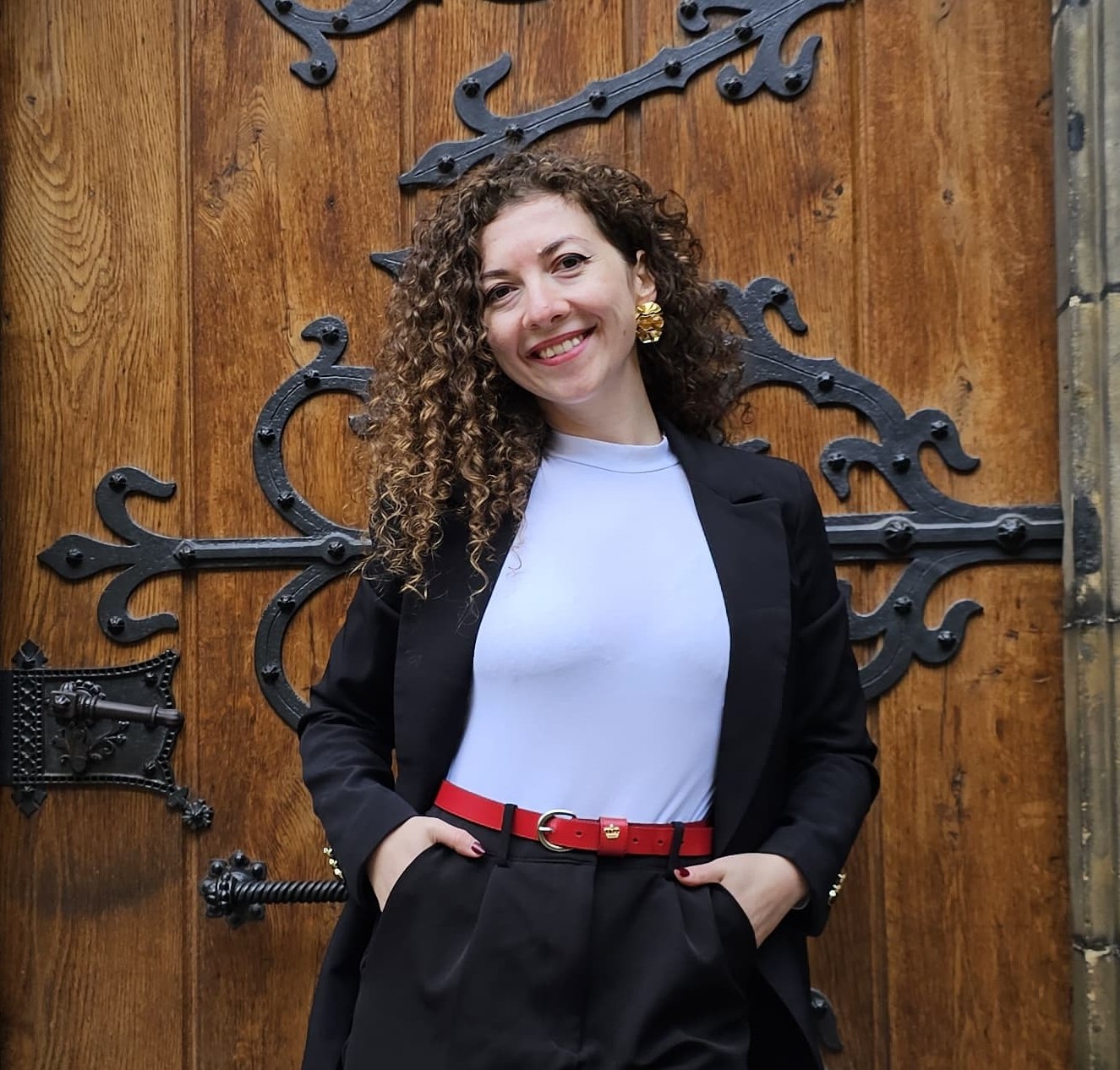Last month, the Estonian politician and diplomat Kaja Kallas began her term as the new High Representative of the Union for Foreign Affairs and Security Policy and Vice President of the European Commission—a long title often abbreviated as HRVP, somewhat equivalent to the Foreign Affairs Minister of the EU.
Replacing Spanish diplomat Josep Borrell, Kallas takes on the role of guiding EU foreign policy and external action. Her appointment marks the first time a Baltic leader has held this influential position, symbolizing a shift in focus toward the EU’s northeastern flank. Kallas’ leadership raises intriguing questions, particularly regarding EU digital governance—a domain where her expertise and Estonia’s reputation as a pioneer could play a transformative role.
It’s worth exploring the significance of Kallas’ appointment, in particular the potential impact of her mandate on tech policy. For example, online platforms and their users are affected by EU foreign policy through counter-disinformation regulations aimed at addressing foreign threats of interference and manipulation. Indeed, technology is increasingly considered a matter of security in the EU, which means that the HRVP may well have a significant impact on the digital space within and beyond the EU.
What is the High Representative of the Union for Foreign Affairs and Security Policy?
The High Representative of the Union for Foreign Affairs and Security Policy / Vice President of the European Commission serves as the EU’s chief diplomat, responsible for shaping the joint foreign and security policy while ensuring coherence between member states’ and EU institutions’ external action. The role emerged from the Treaty of Amsterdam (1999) and was expanded under the Treaty of Lisbon (2009) to give the EU a unified voice in global affairs. It provided a response to Henry Kissinger’s famous question: “Who do I call if I want to call Europe?,” which illustrated a lack of coherence and cohesion in EU foreign policy.
The High Representative chairs the Foreign Affairs Council (negotiating decisions and regulations), represents the EU in international negotiations (for example, trade deals), and oversees the European External Action Service (EEAS), its diplomatic service. The dual position of the HRVP—as Vice President of the European Commission and EEAS chief—ensures a more integrated approach to EU external action. It spurs political coordination among EU member states, in delegations across the world, and across the Commission’s relevant units. For example, the Commission’s Directorate-General for Neighbourhood and Enlargement Negotiations (DG NEAR) oversees relations with neighboring and candidate states, and its FPI Service implements joint objectives such as sanctions, public diplomacy, and strategic communication. It is unquestionably a very influential position in EU affairs.
Kallas is the fifth person to hold the HRVP title since its creation. Before her, Javier Solana (1999-2009), Catherine Ashton (2009-2014), Federica Mogherini (2014-2019), and Josep Borrell (2019-2024) shaped the EU’s foreign and security policy in this role. In previous years, the Arab Spring, the COVID-19 pandemic, and the Israel-Palestine conflict have been central issues for EU foreign and security policy. With the enduring violent conflict in Ukraine, it’s no surprise that Russia will be a central point of focus in Kallas’ term. While her predecessors emphasized multilateralism and interdependence with, for example, the Iran Nuclear Deal, it remains to be seen whether Kallas will continue this tradition so characteristic of the position, which usually adopts a consensus-seeking and cautious approach to preserve unity.
Who Is Kaja Kallas, and what is her plan?
Kallas is a seasoned politician and lawyer who served as Estonia’s Prime Minister (2021–2024), where she gained international recognition for her leadership during the Russian invasion of Ukraine. An advocate for robust transatlantic relations and a strong EU voice in global affairs, Kallas has consistently championed digital innovation and cybersecurity in her country. Her tenure in Estonian politics also highlights her commitment to democratic values, technological advancement, and resilience against hybrid threats. Estonia, a leader in e-governance and cybersecurity often cited as the “most digital country in the world,” reflects Kallas’ expertise in tech policy. Her experience makes her uniquely qualified to integrate digital priorities into the EU’s foreign policy agenda, potentially transforming areas like global trade, cyber defense, and disinformation and Foreign Information Manipulation and Interference, or “FIMI”, the newest trendy acronym in the EU bubble.
During her European Parliament hearing, Kallas outlined a vision that combined a combative stance on Russia with pragmatism on global conflicts and economic diplomacy. Kallas reaffirmed her commitment to Ukraine, calling for Russia’s defeat and the use of frozen Russian assets to rebuild Ukraine. She emphasized that US disengagement from Ukraine would embolden China and insisted that Europe needs greater defense investment. However, she dismissed calls for an EU army, advocating for NATO-led defense instead.
On the Middle East, Kallas maintained a cautious tone, urging adherence to international humanitarian law and promoting a ceasefire and two-state solution. She also stressed the importance of completing the Mercosur trade deal to counter growing Chinese influence in Latin America. Known for her hawkish views on Russia and focus on digital matters, Kallas brings a Baltic perspective that could reshape EU foreign policy and digital governance. Her tenure is expected to prioritize robust defense measures that could translate to a more protectionist approach in the digital sphere.
The growing Baltic Influence in Europe
The Baltic states—Estonia, Latvia, and Lithuania—have long been at the forefront of EU foreign policy, especially on security and technology. Their geopolitical location, bordering Russia, has instilled a heightened awareness of “hybrid threats” – the strategic combination of conventional, cyber, and disinformation tactics. The three small states are strategically vital to the NATO alliance (and vice-versa) because of their proximity to Belarus and Russia, notably the Russian exclave Kaliningrad and the Suwałki Gap between Poland and Lithuania. They have been long-time advocates of stronger defense and communication capabilities in the EU, working in tandem to influence EU politics.
The Baltic states have notably been instrumental in shaping EU policies and regulations on countering disinformation and FIMI, thanks to coordination between national representatives across institutions (e.g., EEAS, European Parliament, European Commission, Council of the EU, NATO). They rely on the expertise and credibility notably brought by the:
- NATO Strategic Communication Centre of Excellence (StratCom COE) in Riga, Latvia;
- NATO Energy Security Centre of Excellence (ENSEC COE) in Vilnius, Lithuania;
- NATO Cooperative Cyber Defence Centre of Excellence (CCD COE) in Estonia;
- EU Agency for the Operational Management of Large-Scale IT Systems in the Area of Freedom, Security and Justice (eu-LISA) in Tallinn, Estonia; and the
- Body of European Regulators for Electronic Communications (BEREC) in Riga, Latvia.
These domains are crucial for ICT policies, such as the governance of social media and online platforms, blockchain technology, and artificial intelligence.
Kallas, as Estonia’s former leader, embodies this legacy. Her appointment signals potential shifts in tech governance and cybersecurity embedded more deeply into EU foreign policy. This could lead to more emergency procedures and sanctions as means to govern the digital ecosystem, with more limited democratic oversight and transparency. The broadcasting ban imposed on Russian state-sponsored media since 2022 is an example of such measures.
Conclusion
In a previous study I led, I showed how the Baltic states proved to be particularly influential in EU policymaking, thanks to coordinated strategies that jumped on opportunities to propose stronger information governance measures. Anybody who knows about their attitudes in negotiations knows that their persuasive power has been proven repeatedly. “It went from ‘these terrible Balts are always afraid of Russia’ to ‘they were right and what Russia is doing is unacceptable’,” a Latvian representative shared with me.
In 2019, Molina and Simón wrote that the High Representative of the Union for Foreign Affairs and Security Policy / Vice President of the European Commission failed to fulfill its potential because of a lack of coordination between the Commission and EEAS roles and across other European Commission portfolios. During this five-year term, while Kaja Kallas heads the EEAS, Latvian Commissioner Valdis Dombrovskis will again be in charge of economic policy, and Lithuanian Commissioner Andrius Kubilius will lead the EU’s defense policy.
In sum, we should prepare for a strong and eastward-looking EU in the next five years. Kallas’ expertise and background position her to lead EU foreign policy with significant consequences in the digital sphere, which has increasingly been regulated as a matter of security in the EU. Her approach is expected to be as resolute as the Baltic states have been historically in EU foreign policy. In recent years, for example, with the broadcasting ban on Russian media outlets RT and Sputnik, the EU has proven to prioritize geopolitical interests over freedom of speech, raising concerns among human rights lawyers. With Baltic influence atop EU leadership, we can expect this trend to continue in EU tech policy, with consequences well beyond Europe since EU regulations tend to affect worldwide standards, a phenomenon known as the “Brussels effect.”
Written by Sophie L. Vériter for Tech policy Press

Hi! I’m Sophie
I am a political and social scientist and democracy activist. In my work, I explore the intersection of technology, information, democracy, and security. Nothing makes me happier than learning and discovering the wonders of the world.



